This contribution by Nefula is part of the special issue of the Pervasive Labour Union zine on the Entreprecariat. Read it here and download it for free as PDF or EPUB.
The Future of Work is a Near Future Design project which focuses on the theme of ‘work’. In line with the Near Future Design methodology, it constructs Curious Rituals, different scenarios about possible futures, each one ironically exaggerating current phenomena, to provoke reactions to issues which may seem paradoxical, but are in fact simple amplifications of actual reality. The project consists of six different scenarios composed through world-building processes, with a speculative approach and a Future Map which includes all of them and suggests their network of relations. The project provides answers and opportunities for discussion around the following question:
How will work transform when Artificial Intelligence, Robots, Algorithms, Drones, and other technologies and related practices (such as Social Networking, Quantified Selves, Ubiquitous and Pervasive Computing, Domotics, etc.) will enter our workplace or, in more extended ways, will become commonplace?
The project/exhibit was produced by the students of the Near Future Design course at the ISIA Design Florence University (an university of excellence of the Italian MIUR, the Ministry for Education) held by Salvatore Iaconesi and Oriana Persico, in collaboration with Nefula (the first Italian Near Future Design studio), and HER – Human Ecosystems Relazioni (a research center dedicated to the exploration of Big Data in cities, territories, organizations and architectures, and of their opportunities in terms of Cultural Acceleration).
We started the project with an investigation about what we perceived as normal, or, on the other hand, curious, strange, problematic, evolving about work, jobs, labor. We also performed a literature review (featuring books, articles, news, journals, magazines) about the transformations of work.
Then, we replicated this kind of research, this time with a focus on the public, gathering expressions about the evolution and futures of work. For this,we used social networks to perform a massive data capture process, collecting hundreds of thousands of posts and comments dealing with the personal and societal fears, passions, hopes and curiosities expressed by people about the future evolution of what we now call ‘work’
We proceeded tagging this content with categories, emotions, topics, and then clustering, analysing, and processing it to try to understand what people belonging from different cultures perceiv as their current normality on “work” and, on the other hand, what they consider curious, futuristic, problematic, unexpected, unforeseen.
At this point, we adopted a collective point of view for our research: the worker. Each Curious Ritual had to be analyzed from the point of view of the worker. Then, in an open discussion with the entire class, we started to understand which elements were important for us to know: is the worker paid for the work that they do? Are they consciously working? What is the relationship with the client? What is the nature of the worker? Is the worker a human, an animal, or a robot? These and other questions were used to filter and highlight the content we discovered.
After students spent days exploring the data, they identified the following questions as a starting point in their word-building process:
- What skills does a human being need to compete with an AI in the job market?
- What happens when your employer is an algorithm?
- And what if you could be replaced by robots?
- What happens when platforms transform human beings into replaceable commodities?
- How does computationally calculated social ranking in influence work, careers and professional relationships?
- What is the future of leisure in the rise of 24/7 culture?
The result of this work phase has been the identification of 6 areas that have created the construction of 6 possible worlds through their transmedial manifestations.
SnifferCase
Social rank dictatorship
Are you sure you know why you got fired? When Artificial Intelligences and algorithms start evaluating and ranking your work, you may start having surprises. In the image, the SnifferCase device allows employees to immediately understand if your data profile matches their expectations.
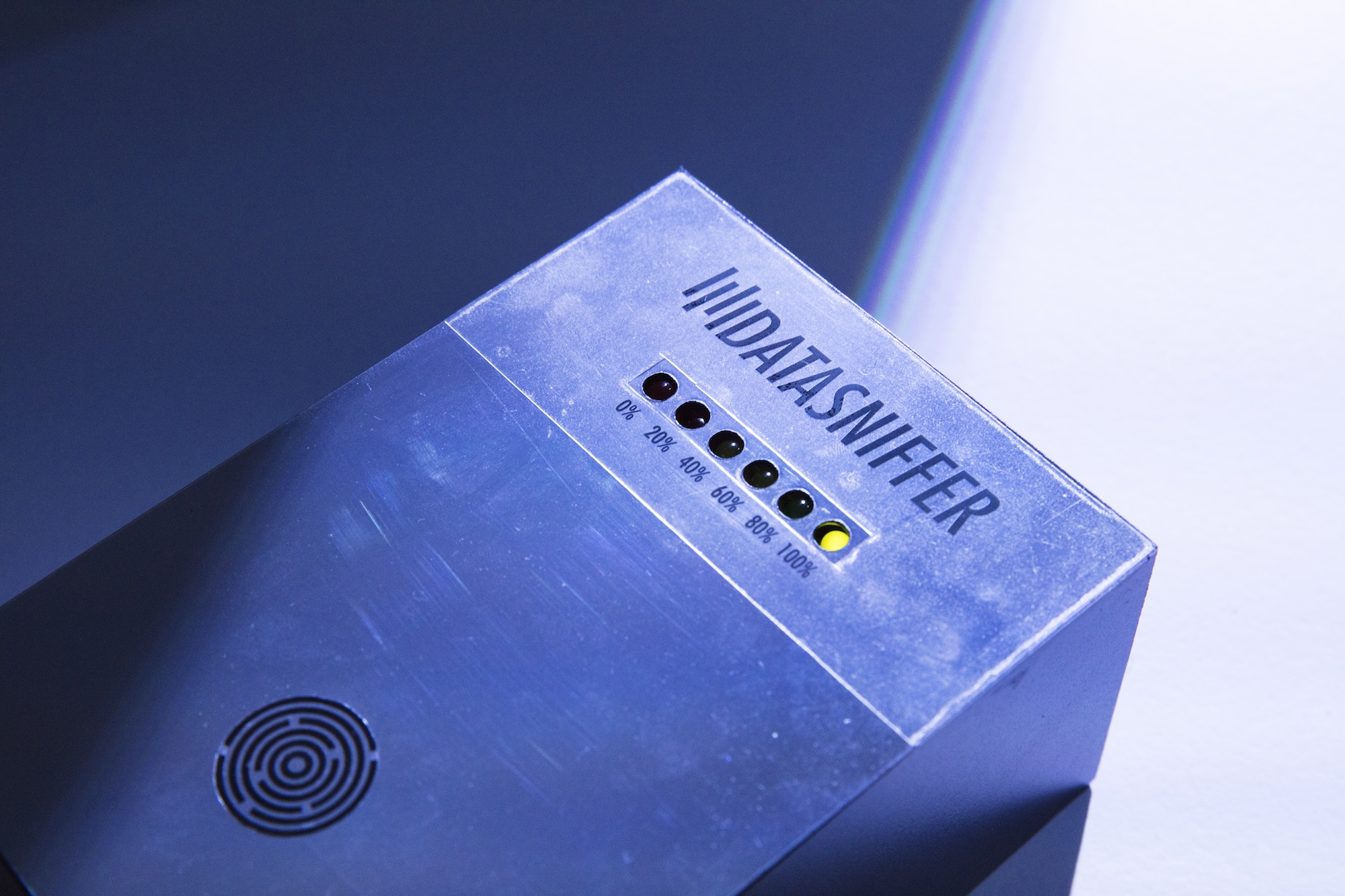
DataSniffer is a project by Andrea Biggio, Alessia D’Anastasio, Sara D’Angelo, Federico De Luca, Marcello Massidda, Selene Mattei. Photo by Joery Erna.
Switch
Humans as replaceable commodities
What happens when workers become completely replaceable thanks to their data-profiles? What happens to trust, relationships and human rights in this scenario?
Switch is a wearable device which vigorously vibrates when the work you are performing does not match the one of the person you are replacing. In case of serious mismatch with desired performance levels, the anklet generates low voltage electric shocks.
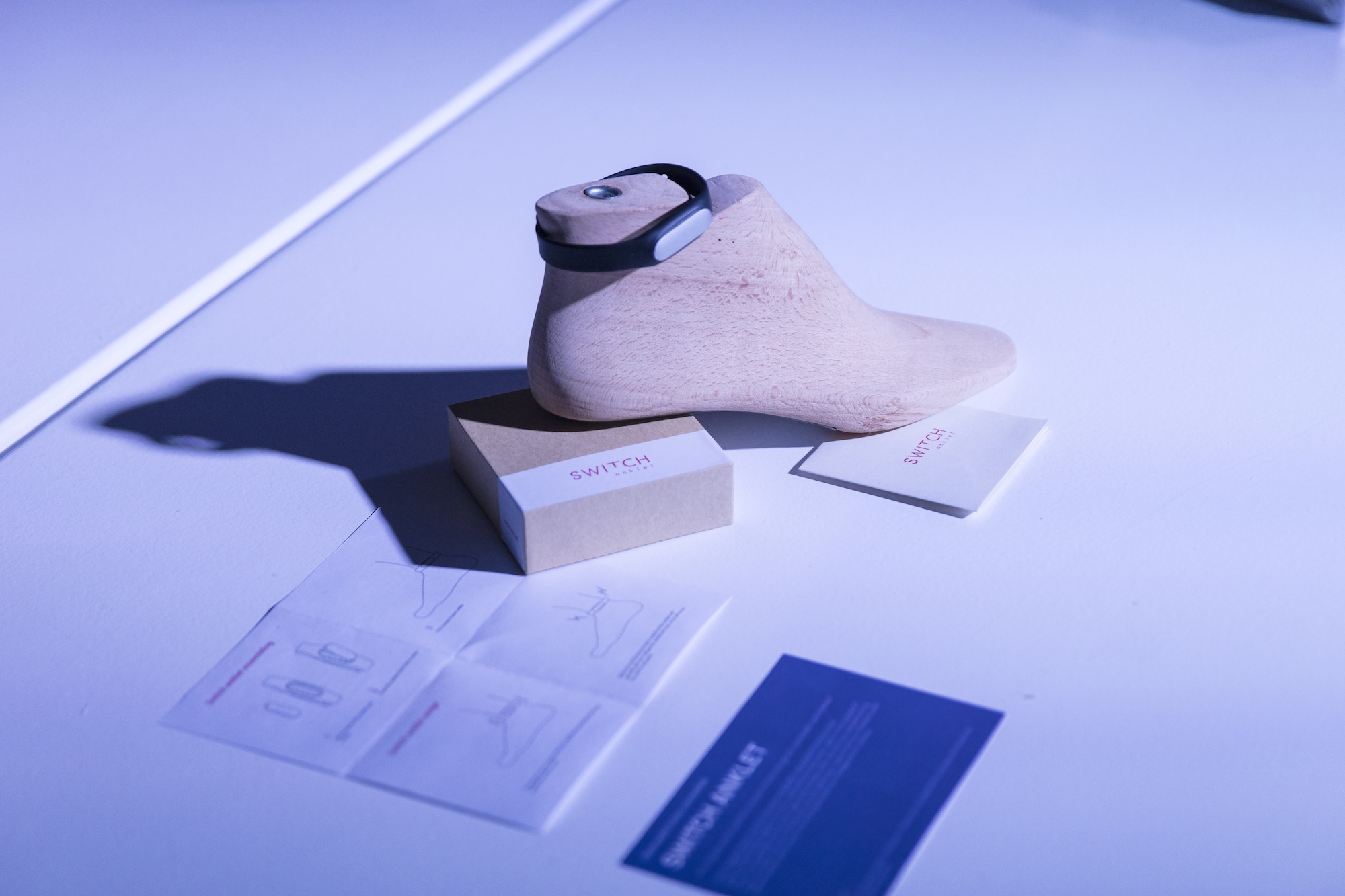
Switch is a project by Camilla Bati, Michele Corcella, Irene Giusti, Alessia Izzo, Francesco Maria Lamonaca, Erminia Aurora Rizzacasa, Virginia Viapiano. Photo by Joery Erna.
Kit 24/7
Freetime and 24/7 work
In our 24/7 culture, work and free time are not separate concepts anymore. The data people produce during their daily routine constantly generates value. The result is that they always work, even when they don’t realize it. In the image: a special kit helps people to fulfill different tasks, maximizing profit of each moment of their daily lives, including sleep and dreams.
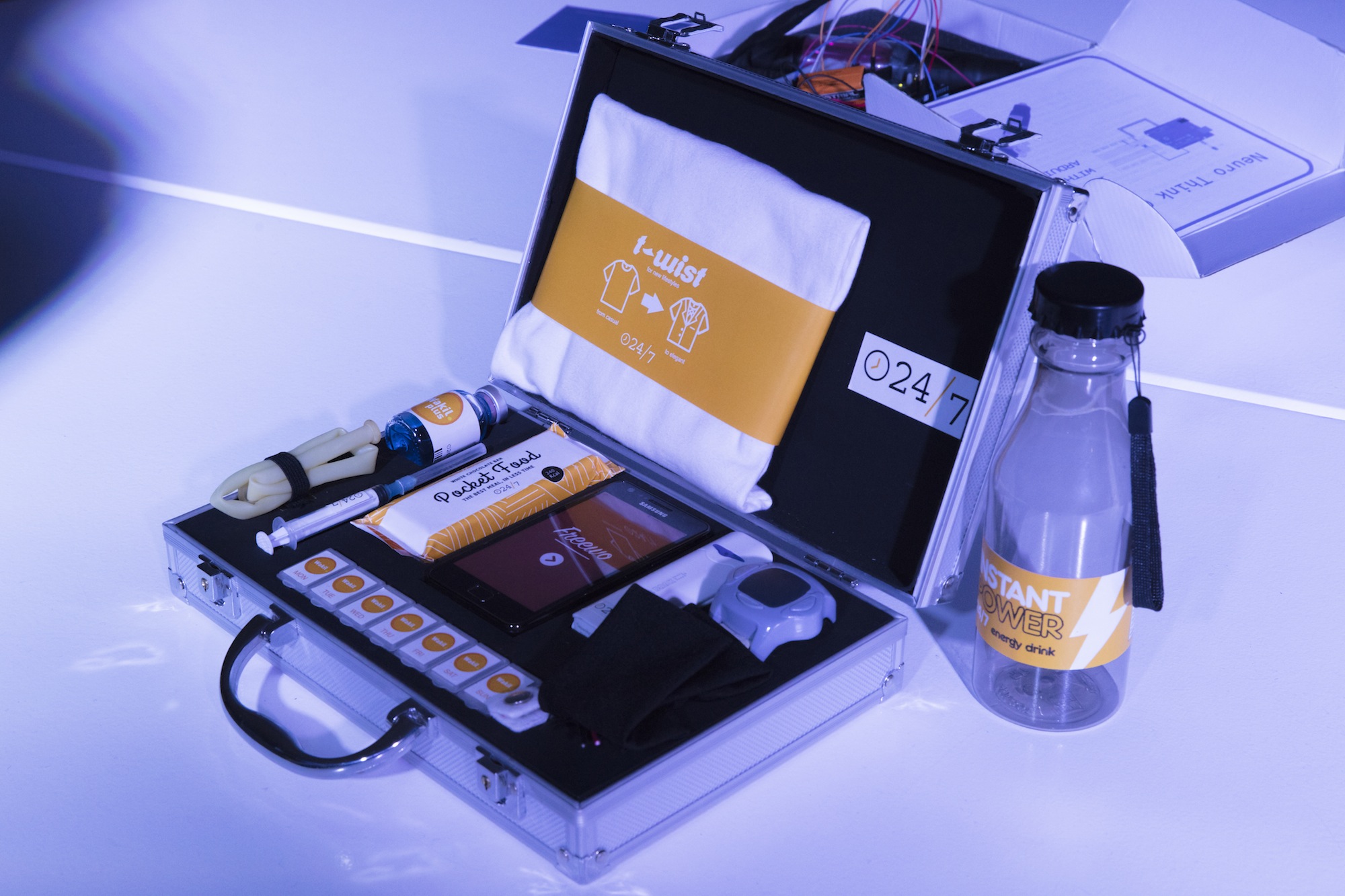
24/7 is a project by Marina Ceccolini, Eleonora Cippitelli, Irene Coletto, Ilaria Lorusso, Simone Pannoni, Alessandra Perillo. Photo by Joery Erna.
Karmachine
Data-driven careers
What happens when my boss is an algorithm? In a world where work is increasingly managed by platforms, algorithms determine your salary day by day, minute by minute. Nothing is certain. With Karmachine you can press a button to know how much you will earn today.
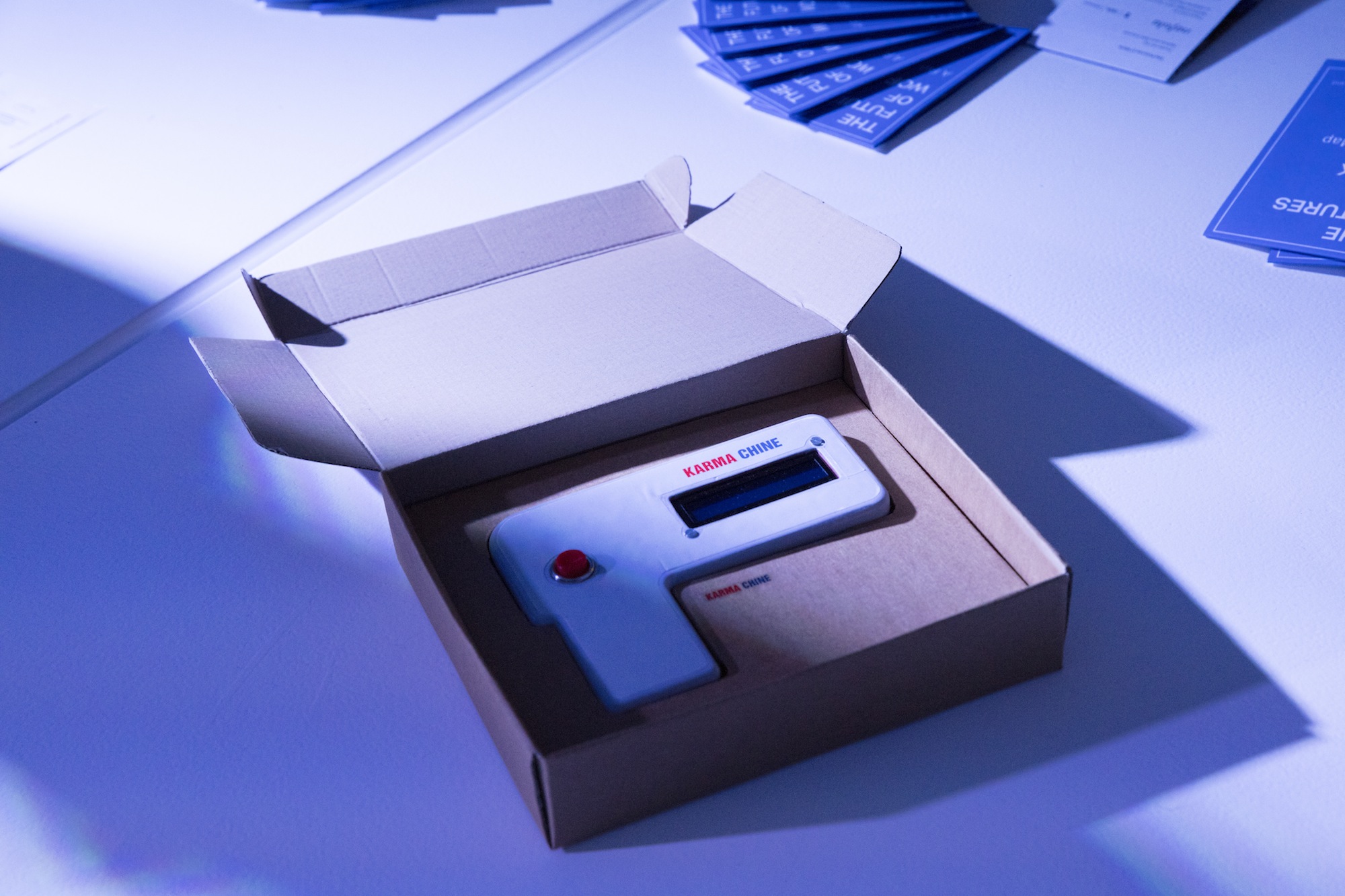
Karmachine is a project by Elena Bellini, Ambra Bordacchini, Sergio Buonocore, Francesco Foto, Mariasole Rovati, Mouhannad Soulyman. Photo by Joery Erna.
NeuroThink Gun
AI-Human competition
How can humans be competitive with Artificial Intelligences? Will we have to augment ourselves to remain on the market? In the image, the NeuroThink gun allows injecting a subcutaneous microchip which merges with people’s central nervous system, enabling augmented performance, knowledge and information flow capabilities, sensorial processing, output reactivity, network relationships management.
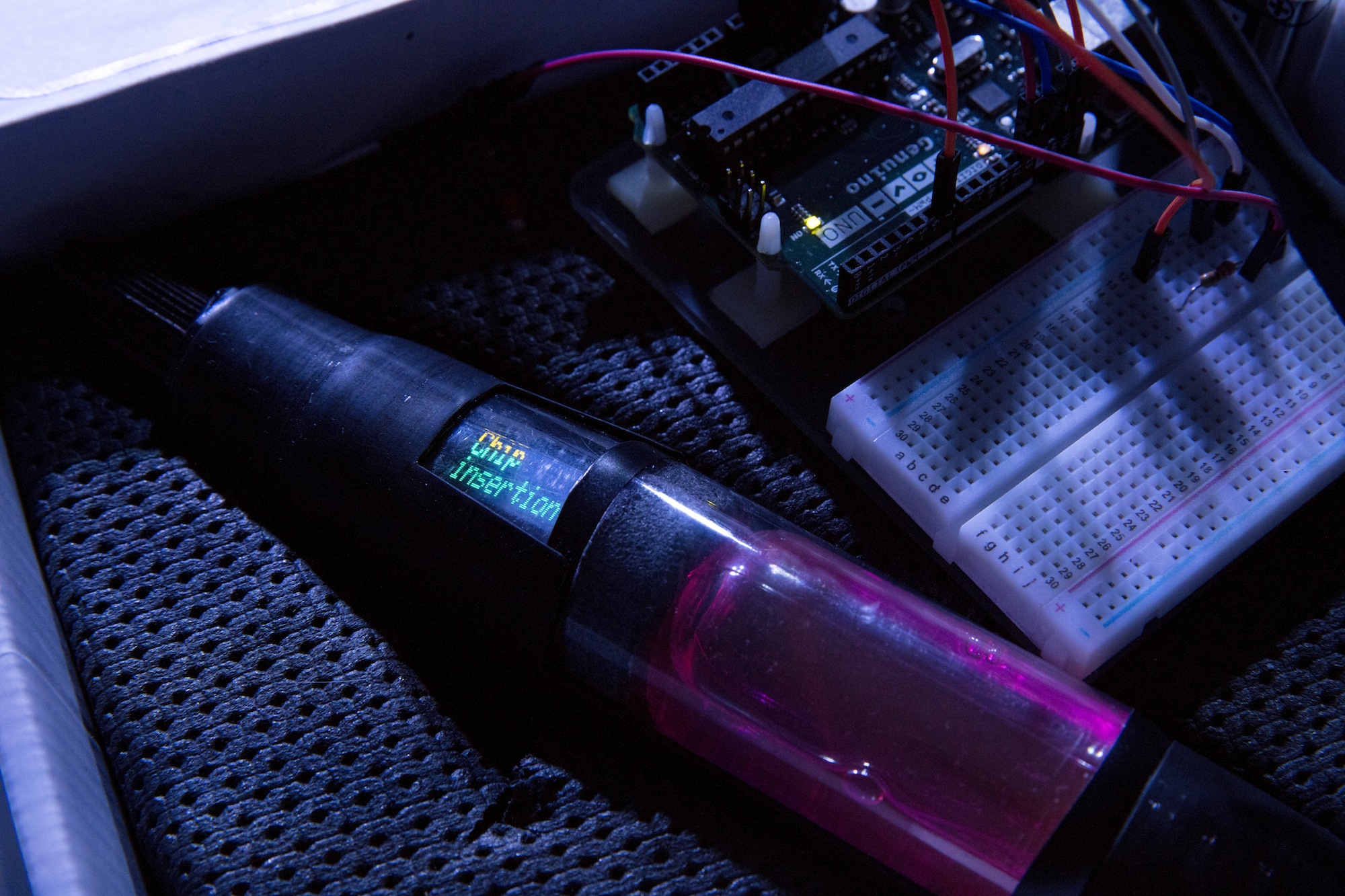
NeuroThink is a project by Marco Bortolloni, Ilaria Capriati, Riccardo Conti, Marinella Fedele, Simona Mazara, Bronzetti Riccardo, Francesca Tumedei. Photo by Joery Erna.
Hand motion scanner – Metasex
Man-machine replaceability
When robots and artificial intelligences enter the workplace, the role of human beings changes dramatically. In this scenario, sexworkers are replaced by robots, generating new markets, new opportunities and freeing human beings from labour. In the image, the device is used to capture the motion of human hands in order to train the movements of robots using machine learning.
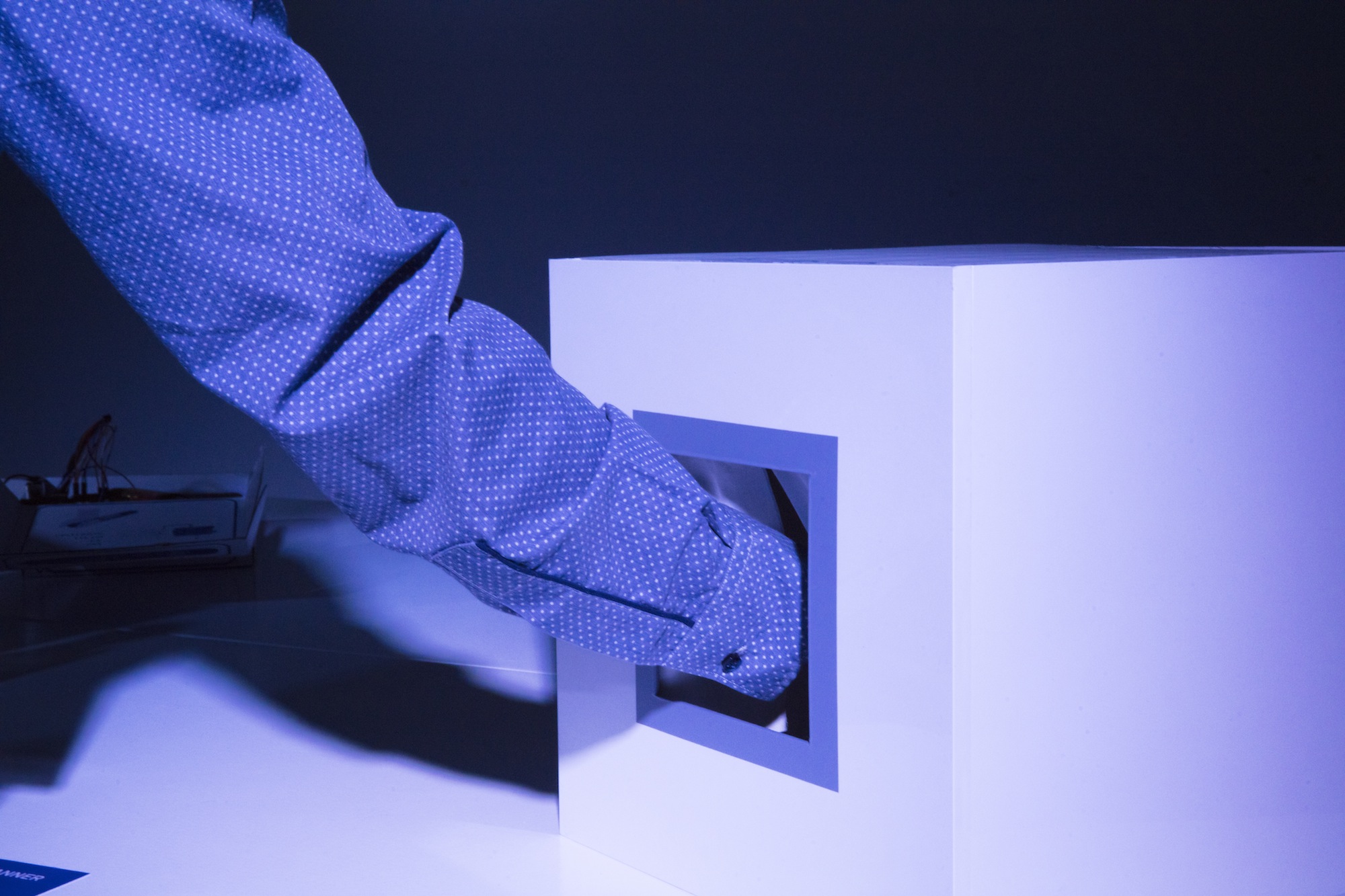
MetaSex is a project by Francesca Cellini, Antonio Conticello, Serena Morandi, Daniela Olivieri, Sara Velenik. Photo by Joery Erna.
To collect and connect all of these representations and worlds we worked with Nefula to produce the Future Map of this big scenario.
The Future Map is an artistic, communicative, imaginative representation of the world in which the Near Future Design concepts (the New Normals) exist.

The Future Map realized by Nefula to present the projects and highlight the connections and tensions between them.
All of the results of our course at ISIA Design Firenze, have been presented at the NET FUTURES Conference (the annual event co-organized by the European Commission to explore the future of Internet, economy and society) in Bruxelles on 28th and 29th June 2017. We will be hosted by the STARTS (Science, Technologies and the ARTS) programme, launched by the European Commission in 2014 to encourage synergies between the Arts and innovation for technology and society, inside the Horizon 2020 projects.
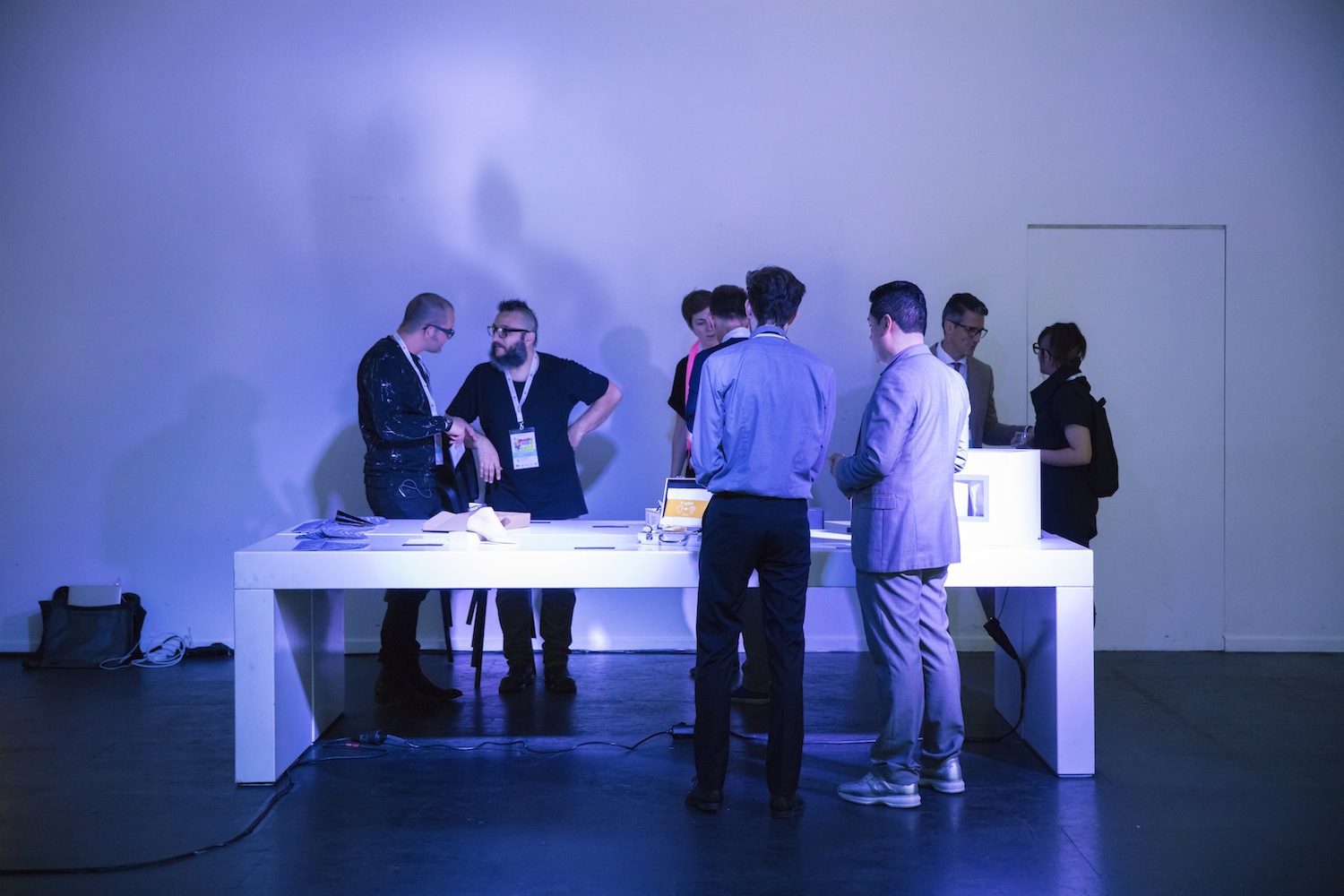
The Exhibition in Brussels at NETFUTURES realized within the STARTS pavillion. Photo by Joery Erna.
Our efforts emphasized interesting patterns and trends that, at different degrees of complexity, are emerging in the world of Work. The course/project has taken on us particular interest and importance because of the fact that the students themselves were confronted with this theme by bringing their own vision, doubts and reflections into a wider dialogue, opening it to society and to big institutions.
Also published on Medium.
